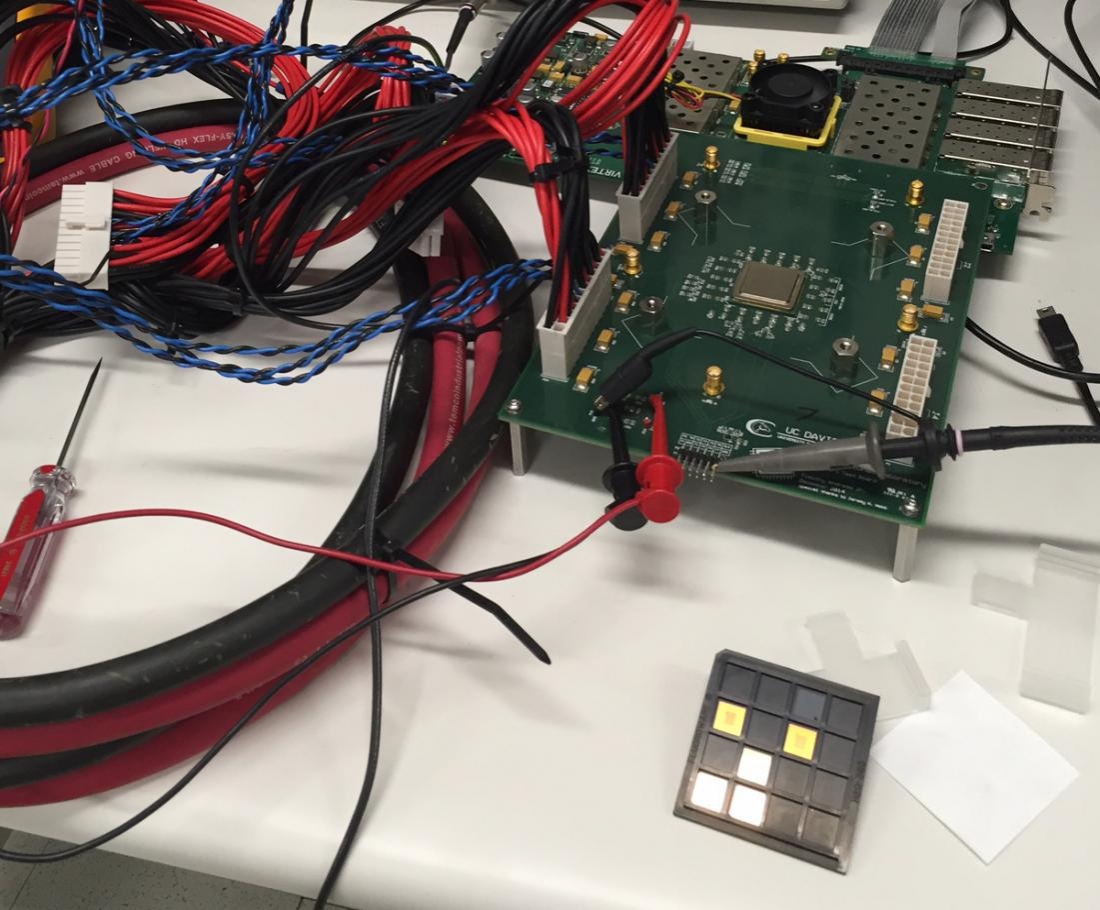Researchers with the Department of Electrical and Computer Engineering at UC Davis have developed an energy-efficient KiloCore processor that, as the name implies, features 1,000 processing cores.
Built by IBM, the KiloCore has a maximum computation rate of 1.78 trillion instructions per second and contains 621 million transistors. Although built on a dated 32-nanometer manfuacturing process, the chip is still rather efficient as individual cores can shut themselves down when not needed.
Bevan Baas, a professor of electrical and computer engineering who led the team that designed the chip, said it can execute 115 billion instructions per second while dissipating only 0.7 watts - low enough to be powered by a single AA battery. Even as today's fastest consumer processors have moved to the 14-nanometer FinFET process, the KiloCore executes instructions more than 100 times more efficiently than, say, the CPU you'd find in a modern laptop.
To the best of their knowledge, Bass added, this is the world's first 1,000-processor chip and it is the highest clock-rate processor ever designed in a university with cores operating at an average clock frequency of 1.78GHz.
The chip is already being used in the areas of wireless coding / decoding, encryption and video processing which involve large amounts of parallel data processing. It could also be useful in the areas of scientific data applications and datacenter record processing, we're told.
